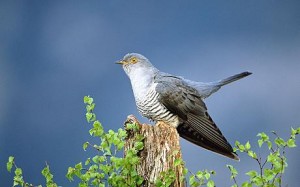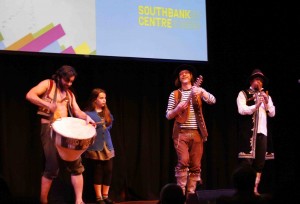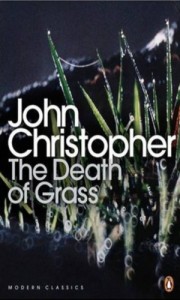In the end, it’s always the small things that prick your conscience, that bring it all home. No matter how many times you see celebrities on cup rattling telethons or charity muggers pleading for your card details to set up direct debits, it’s always the things you least expect that deliver the killer sucker punches. A news story buried halfway through the paper; a conversation in a pub with a stranger; a book pulled off the shelf in a quiet moment on a whim.
I had two of those penny-dropping ‘holy shit’ moments this weekend where I started to properly connect dots thinking about human impact on nature. Although green politics are never very far from view, so much of it seems so scary it almost renders it inconceivable. You try to imagine the small digits of temperature rises that are talked about in the news as notches on a thermostat or the difference between wearing a t-shirt or a jacket whereas the reality – the grim reality – is failing crops, rising sea levels, uncontrollable weather and worse. Inevitably, an inconvenient truth becomes an easily ignorable one if you think your contribution will make not one iota difference.
On Saturday night, we promoted our first Caught By The River event at the Purcell Rooms on the Southbank as part of the London Literature Festival (we’ll talk more about it elsewhere). The final speaker was Michael McCarthy, reading from ‘Say Goodbye To The Cuckoo’. Michael is an environmental writer for the Independent and the first journalist to be awarded a medal by the RSPB in recognition of his work raising awareness to the plight of bird life in this country. The title of the book is pretty self-explanatory – Britain is no longer waking up to one of the most distinctive sounds of the countryside. As Michael read extracts from his book, slowly a picture unfolded of the UK at an environmental tipping point – one where migratory birds have stopped visiting our shore, where they no longer use them as breeding grounds.
You start to think about what the signifiers of the seasons are – birdsong, flowers budding, fruit and veg reaching maturity… and then you realize that these days, from the vantage point of behind a computer screen in a concrete and glass city centre, you don’t really have any idea of what’s going on past the end of the road anyway. I be surprised if any of us are really sure when spring smudged into summer or what’s seasonal to this country anymore – the supermarkets spreading out a bounty plundered from the four corners of the Earth (do we really need to source asparagus from Kenya? Shouldn’t we just eat it when it’s available here?). I walked away from McCarthy’s talk with a vision of a country suffering from a homogeny of seasons, where Britain’s local distinctiveness has been replaced by shelves stacked with foreign bodies and silences on our village greens and hedgerows. And that really scared me.
(An interesting quirk/coincidence on Saturday was that an hour or so earlier on the bill Will Hodgkinson was reading from his book ‘The Ballad Of Britain’. The book is a folk music gazetteer, a tour of the British Isles documenting music that’s indigenous to each region. At the talk, Will introduced to the stage The Princes In The Tower , a quartet he’d met on his travels. The Princes playing strictly Medieval music with instrumentation and costumes to match. Completely coincidently, they performed “Sumer Is Icumen In” – one of the oldest documented English folk songs which dates back to the 13th century. The song was inspired by the arrival of the cuckoo in Springtime. Makes you wonder what folk musicians will find to write about in the 21st century? )
The other thing that set me pondering was the reissue of John Christopher’s 1956 novel ‘The Death Of Grass’. The book details a societal breakdown following a global ‘floral apocalypse’ brought on by a virus that has wiped out all forms of grass, which includes most of the major crop plants – wheat, barley, rye and oats. Like most of the science fiction/catastrophe books – think John Wyndham’s ‘The Day Of The Triffids’ or Cormac McCarthy’s ‘The Road’ (thankfully ‘The Death…’ is no where near as relentlessly bleak, not sure I could take another one of them) – ‘The Death of Grass’ offers a pretty hopeless vision of a country that has headed way past breaking point. Although out of print for some time, Christopher’s book has long been considered a SF classic with mint first editions fetching in the region of £300. The reprint now features an introduction by Robert Macfarlane who points out the parallels between the book and the realities of the world in 21st century – the fact that we now live in an age of epidemics, listing foot and mouth, Blue Tongue, Avian Flu and SARS (and in the time since Macfarlane filed his copy and the book being printed we can add Swine Flu to that grimmest of roll calls). The idea that a crop based virus could wipe out food supplies is far from far-fetched – in fact, the UG-99 stem rust fungus is doing exactly what Christopher predicted half a century ago across Africa and the Middle East (it’s interesting to note that stem viruses like UG-99 were developed by the US military as part of their post WWII biological weapons research programmes). The conditions which the book documents are dizzying and poignant. Sadly, they are also not too much of a stretch for the imagination.
So, that’s my weekend – spent thinking about two very distinctive visions of possible futures for our country. One very real and one very realistic. As I said at the start, for better or for worse, no matter how many times you see Bono or Geldof rattling on at the G8 summits, it’s always these small things that get you the most.
It’s just what the hell do you do about them though?
Robin


